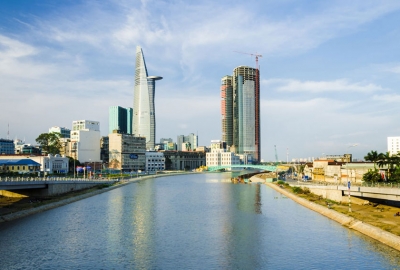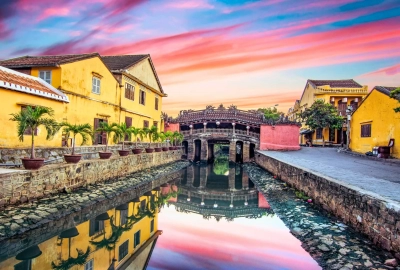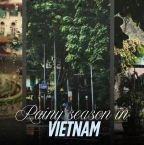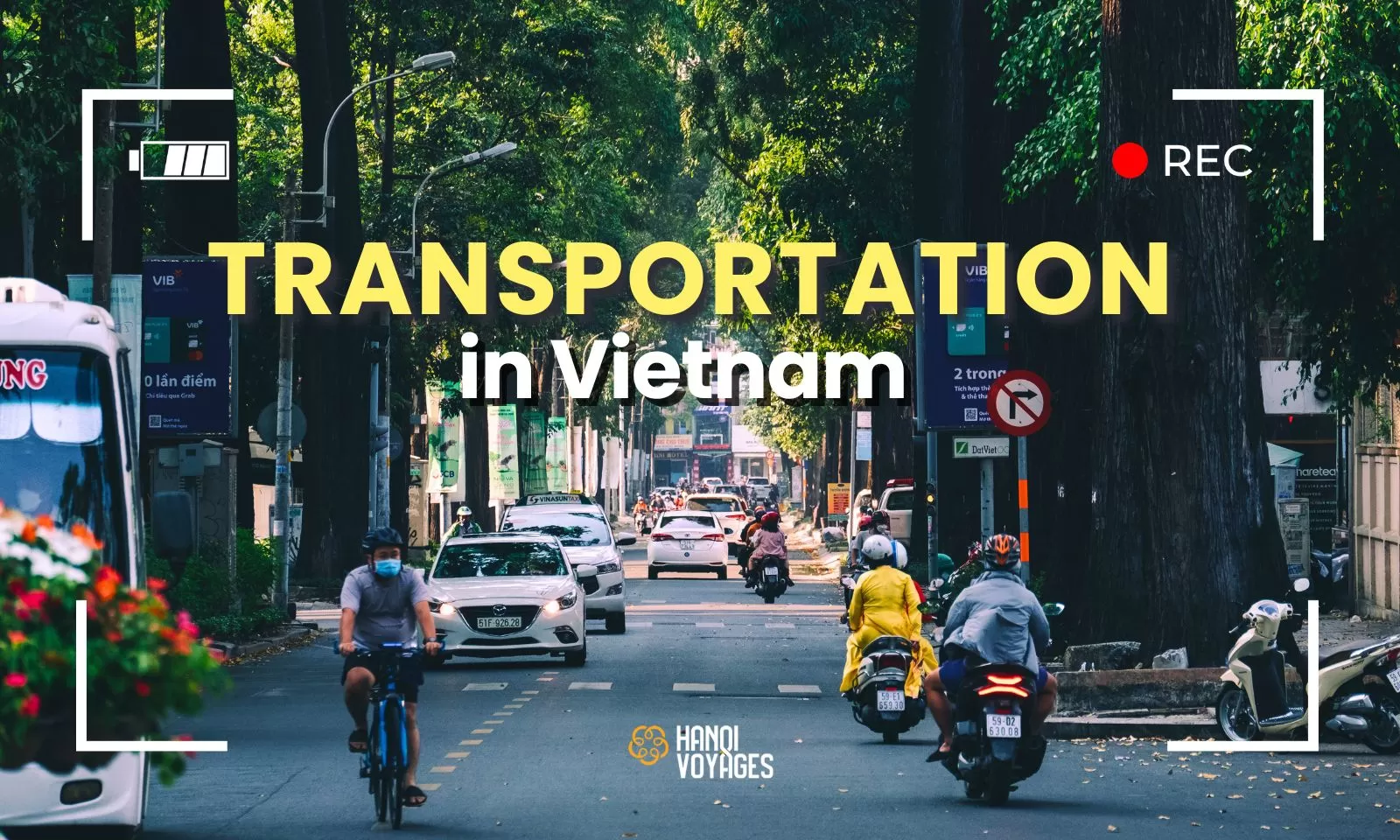
Transportation in Vietnam: Best options for getting around
Traveling in Vietnam is an exciting experience, and understanding how transportation in Vietnam works will help you navigate the country with ease. In this guide, we’ll cover the best ways to get around, ensuring a smooth and enjoyable journey through Vietnam.

Vietnam is a top travel destination with its rich culture, impressive scenery, and bustling cities. To fully enjoy your adventure, it's important to understand how to get around. From motorbikes and taxis to buses and domestic flights, this guide will help you navigate transportation in Vietnam smoothly. Don't worry! Hanoi Voyages is here to travel with you every step of the way.
Table of Contents
Discovering transportation in Vietnam: How to travel around cities
Vietnam offers a variety of convenient transportation options, making it easy to explore its lively cities, rich history, and beautiful landscapes. Here are the most popular transportation options to help you get around Vietnam’s cities with ease.
Motorbike
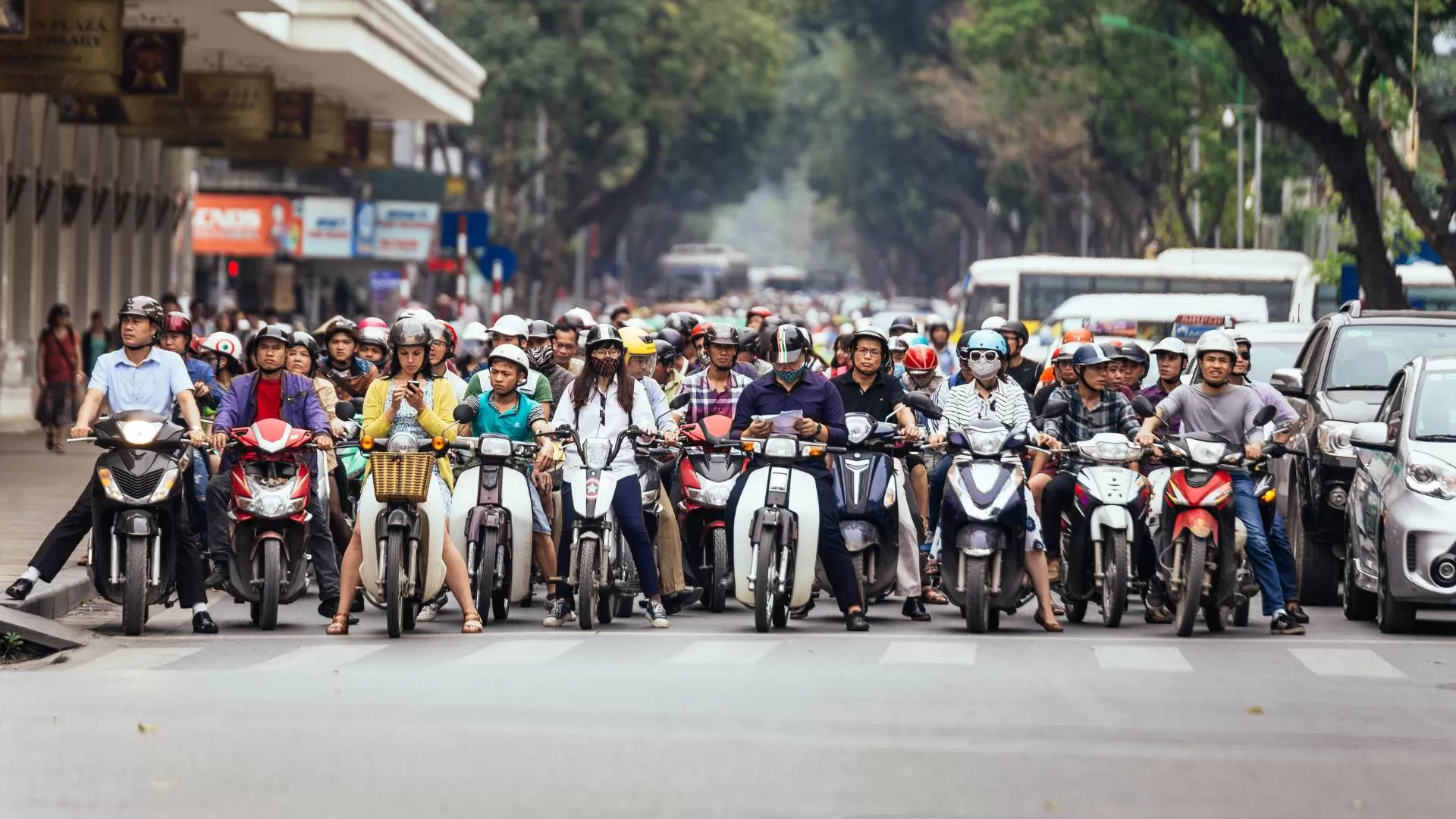
Vietnam is often called the land of motorbikes, and for good reason. With millions of motorbikes weaving through the streets every day, they are the primary mode of transportation for locals and an exciting option for travelers. Renting a motorbike gives you the freedom to explore at your own pace, making it an excellent choice for adventurous visitors.
This is especially true in cities like Da Nang, Hue, and Dalat, where the traffic is relatively calmer compared to major hubs like Ho Chi Minh City or Hanoi. If you're comfortable riding, a motorbike can be one of the best ways to experience Vietnam’s vibrant streets and scenic countryside.
💰Daily rental prices range: 100,000 - 200,000 VND (~$4–$8), depending on the bike model and location.
Taxis
Taxis are one of the most convenient ways to get around in Vietnam, offering comfort, safety, and ease of use, especially for travelers who prefer not to drive in the often chaotic traffic. Whether you're moving between tourist attractions, heading to the airport, or exploring the city at night, taxis provide a hassle-free transportation option. In Vietnam, there are two main types of taxis: traditional taxis and ride-hailing (app-based) taxis. Each has its own advantages and considerations, depending on your travel needs.
Traditional taxis
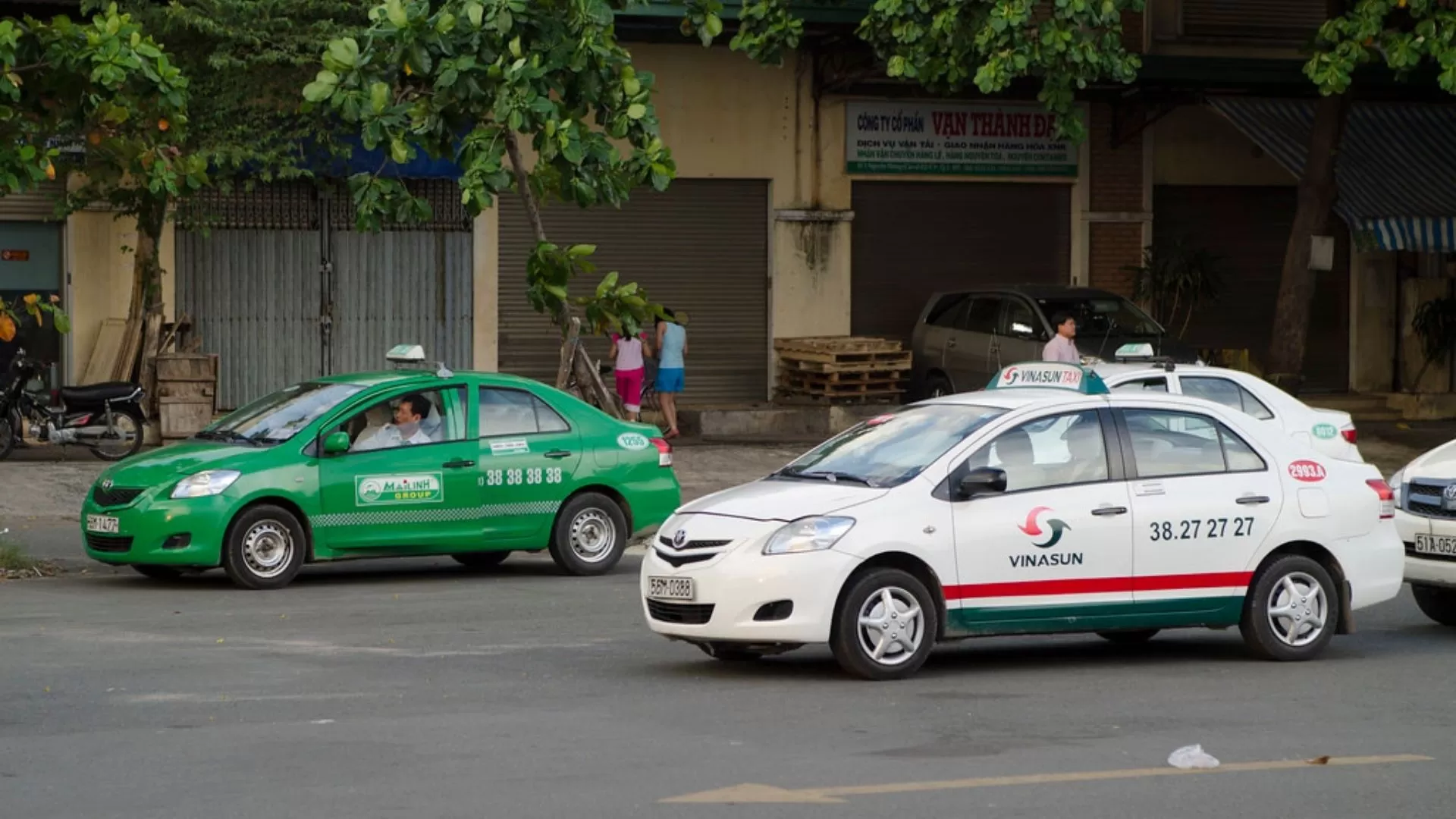
Traditional taxis in Vietnam operate with metered fares and are widely available in major cities. Reputable companies include Mai Linh Taxi, Vinasun Taxi, and Taxi Group. They offer professional drivers and fixed fares when the meter is used properly.
However, some drivers may overcharge by taking longer routes or refusing to use the meter. Many do not speak English, and payment is mostly cash-only. To avoid scams, choose well-known taxi companies or ask your hotel to call a taxi for you.
Ride-hailing (app-based) taxis
Apps like Grab, Be and Xanh SM are the most convenient way to book rides, offering both cars and motorbikes. They provide transparent pricing, cashless payments, and easier communication via app features.
The downsides include price surges during peak hours, the need for internet access, and limited availability in rural areas. For a smooth experience, getting a local SIM card with mobile data is recommended.
Public buses
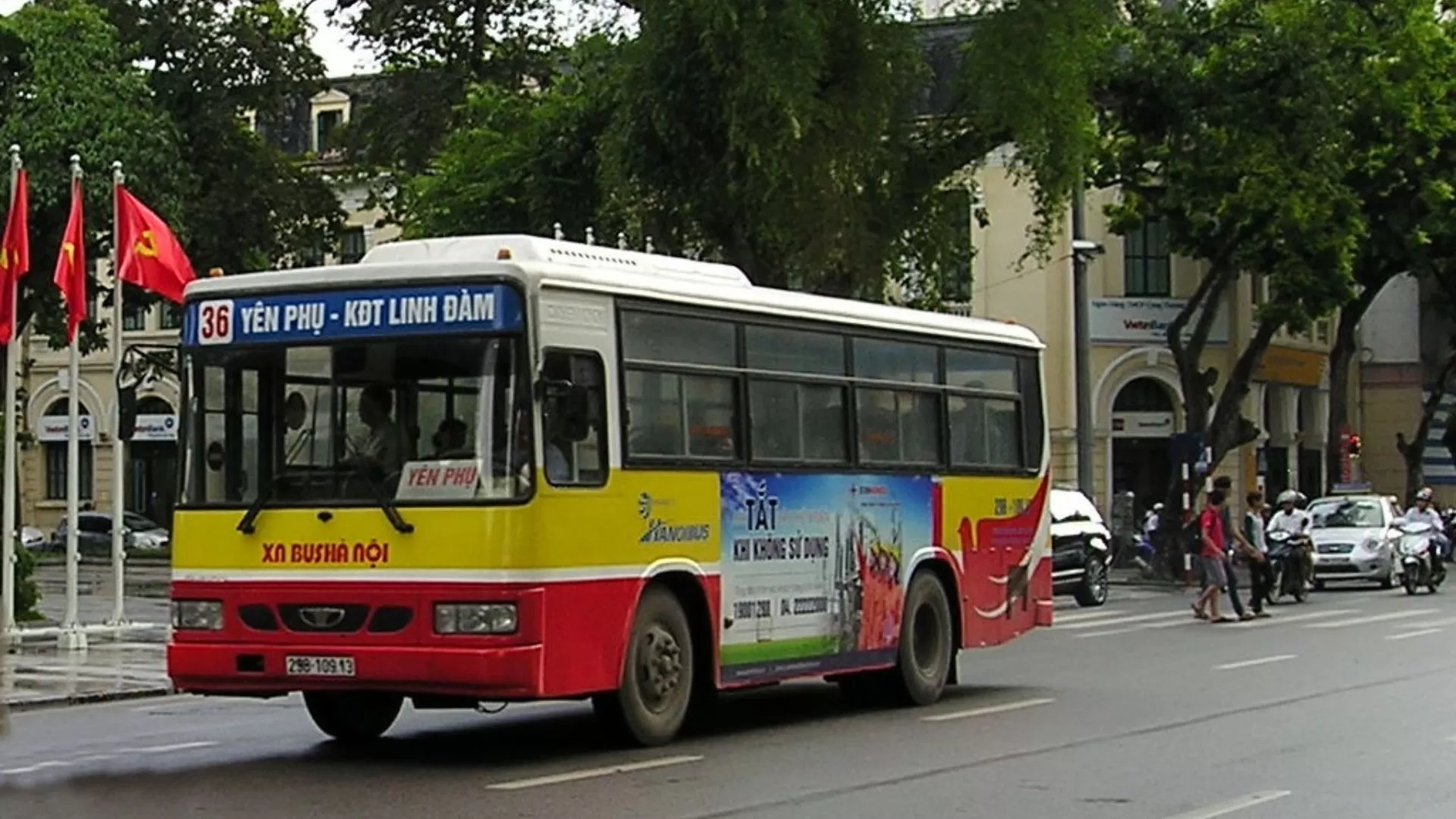
Buses are a popular and economical means of public transportation in Vietnam, with fares starting from only 10,000 VND (~$0,4) /trip. The bus system covers mainly major cities such as Hanoi, Ho Chi Minh City, and Da Nang. This is an ideal choice for tourists who want to save money and experience the daily life of locals.
However, buses have some limitations such as not being able to be proactive about time and having to walk far to pick-up and drop-off points. In addition, during rush hour, buses are often crowded and there is a risk of pickpocketing. However, with affordable prices and a wide network, buses are still a choice worth considering when traveling to Vietnam.
Hanoi Voyages offers Vietnam tours for the best experience |
|---|
Hanoi Voyages proudly offers exciting and captivating tours to Vietnam:
If you want to explore Vietnam on your private tour, Hanoi Voyages also offers tailor-made itineraries to create the perfect trip for you. Contact us now! |
Intercity transportation in Vietnam: Easy travel between provinces
Vietnam is a diverse and well-connected country, making it easy to travel between provinces. There are plenty of transportation options to suit different travel styles and budgets. Here’s a guide to help you choose the best way to move between provinces efficiently.
Flights
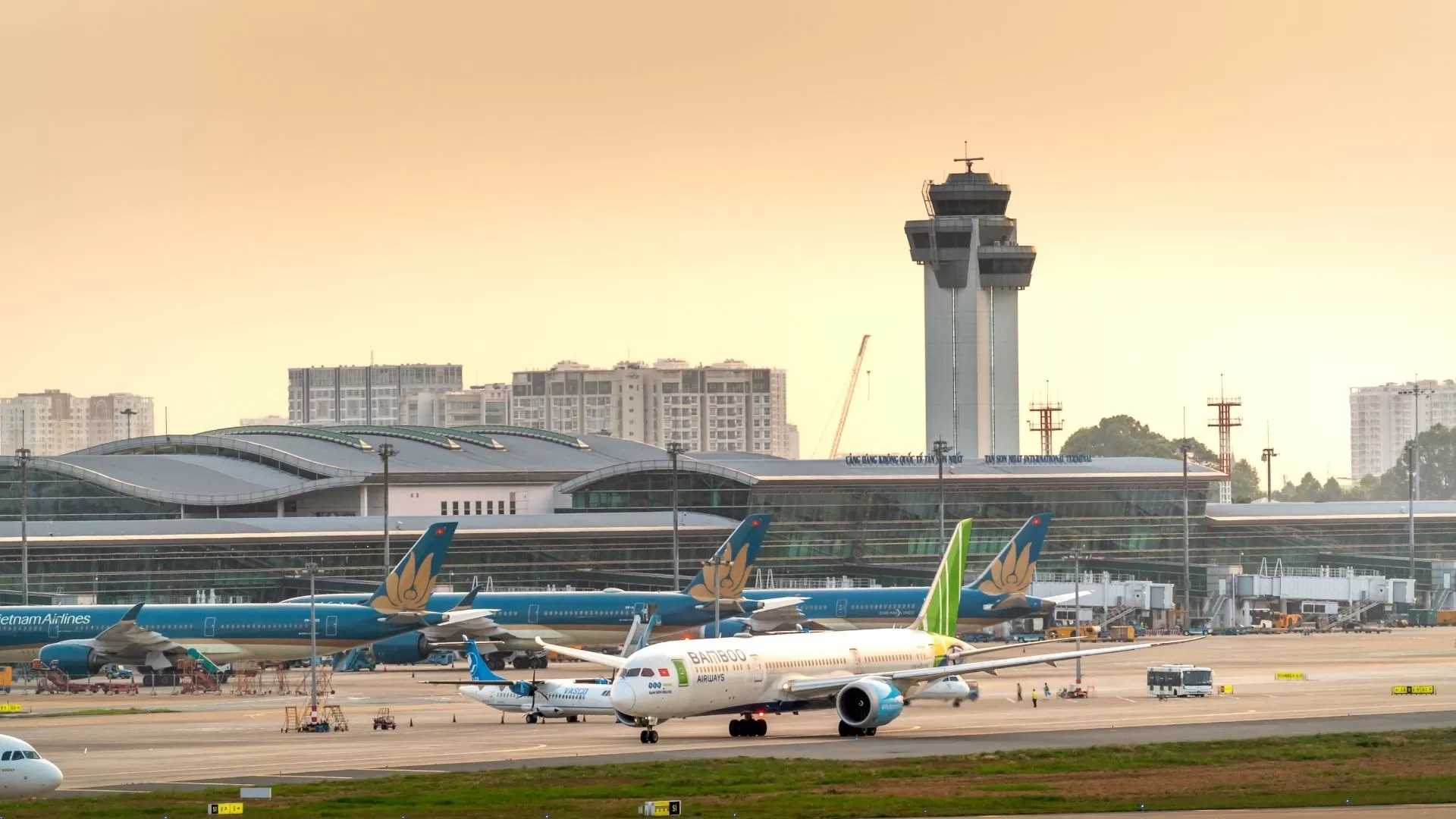
For travelers covering long distances, domestic flights are the fastest and most convenient way to get around Vietnam. Vietnam has several major airports, with Noi Bai International Airport (Hanoi), Tan Son Nhat International Airport (Ho Chi Minh City), and Da Nang International Airport with airlines like Vietnam Airlines, VietJet Air, Bamboo Airways.
Flights are ideal for moving between the north, central, and southern regions, significantly reducing travel time compared to buses or trains. Popular routes like Hanoi to Ho Chi Minh City or Hanoi to Da Nang take just a couple of hours, making flying the best option for those with limited time.
Popular Domestic Flight Routes & Duration:
Hanoi → Ho Chi Minh City: ~2 hours
Hanoi → Da Nang: ~1 hour 20 minutes
Ho Chi Minh City → Phu Quoc: ~1 hour
Da Nang → Nha Trang: ~1 hour
For the best prices, booking flights in advance is recommended, especially during peak travel seasons when demand is high.
💰 Domestic flight prices in Vietnam typically range from 2,500,000 – 3,300,000 VND (~$100-$170) for a one-way ticket, depending on the airline, route, and booking time.
Train
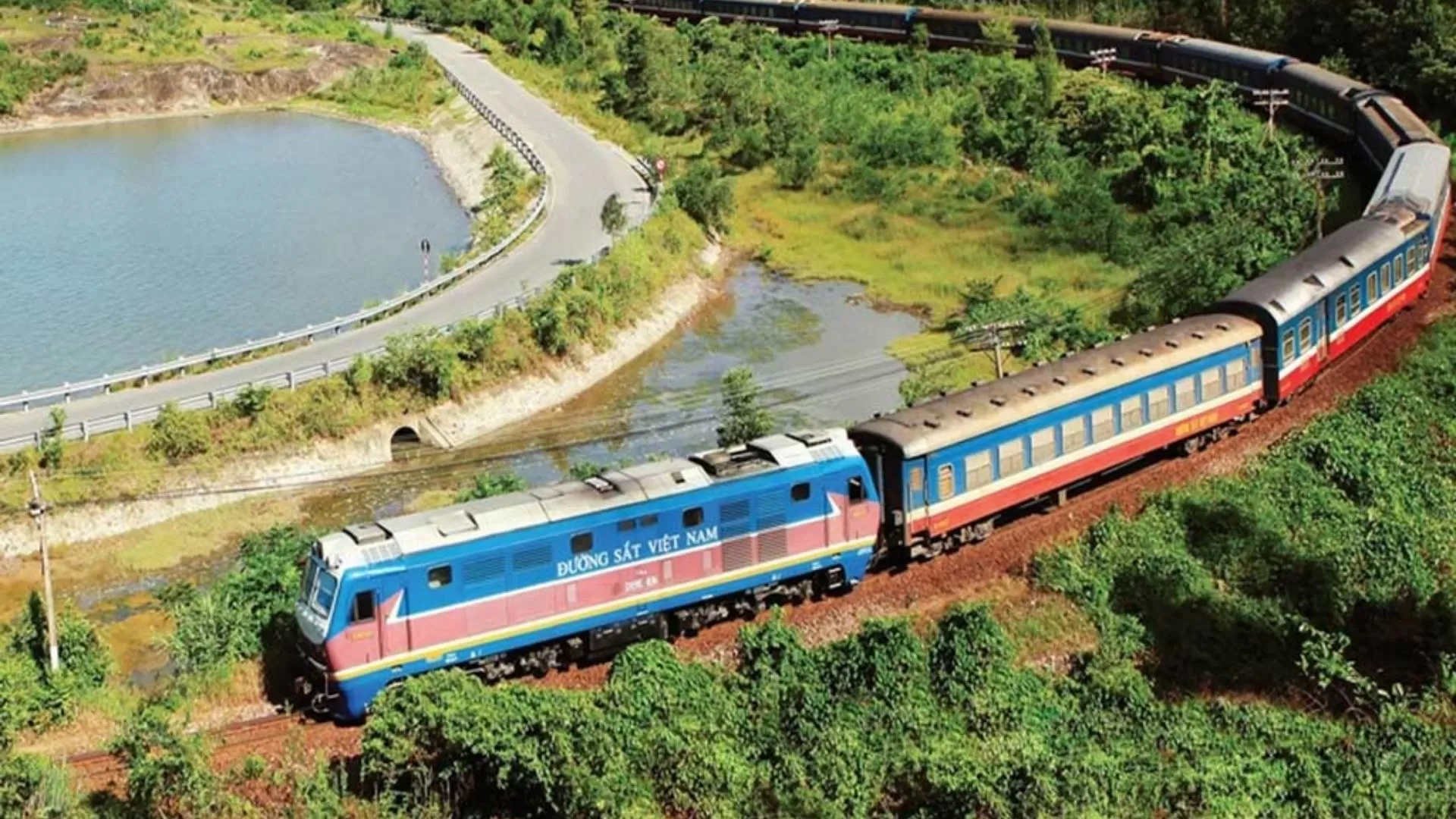
Vietnam offers a variety of transportation options for travelers, but one of the most scenic and comfortable ways to explore the country is by train. The railway system connects major cities from North to South, providing a safe and affordable way to travel while enjoying beautiful landscapes.
For long-distance trips, many travelers prefer air-conditioned sleeper trains, which provide comfortable beds for overnight journeys. One of the biggest advantages of train transportation in Vietnam is the opportunity to admire incredible views along the journey.
Popular train routes & duration:
Hanoi → Da Nang: 16-18 hours (beautiful coastal route)
Hanoi → Sapa (Lao Cai): ~8 hours (overnight sleeper train)
Ho Chi Minh City → Nha Trang: ~8 hours
Ho Chi Minh City → Phan Thiet: 4-5 hours
Compared to flights, train transportation in Vietnam is more budget-friendly. There are multiple ticket options, including hard seats, soft seats, and sleeper cabins.
💰The average train ticket price is around 1,000,000 VND ($40), depending on the route and seat class.
Intercity buses
One of the main transportation in Vietnam for long-distance travel is intercity buses. With an extensive network, buses connect major cities like Hanoi, Da Nang, Nha Trang, Da Lat, and Ho Chi Minh City at an affordable price. Compared to trains or flights, buses are more budget-friendly and offer multiple departures daily, making them a convenient choice for travelers.
Types of intercity buses
Standard seat buses: Cheapest option, suitable for short trips.
Sleeper buses: Equipped with reclining beds, ideal for long routes like Hanoi – Hue (12-14 hours) or Ho Chi Minh City – Da Lat (6-7 hours).
Limousine VIP buses: More spacious seats, WiFi, and complimentary water, often used for routes like Hanoi – Sapa (5-6 hours) or Ho Chi Minh City – Vung Tau (2-3 hours).
💰Ticket prices vary depending on the distance and bus type, typically ranging from 150,000 – 500,000 VND ($6 – $20 USD) for most routes.
Travel tips for easy transportation in Vietnam
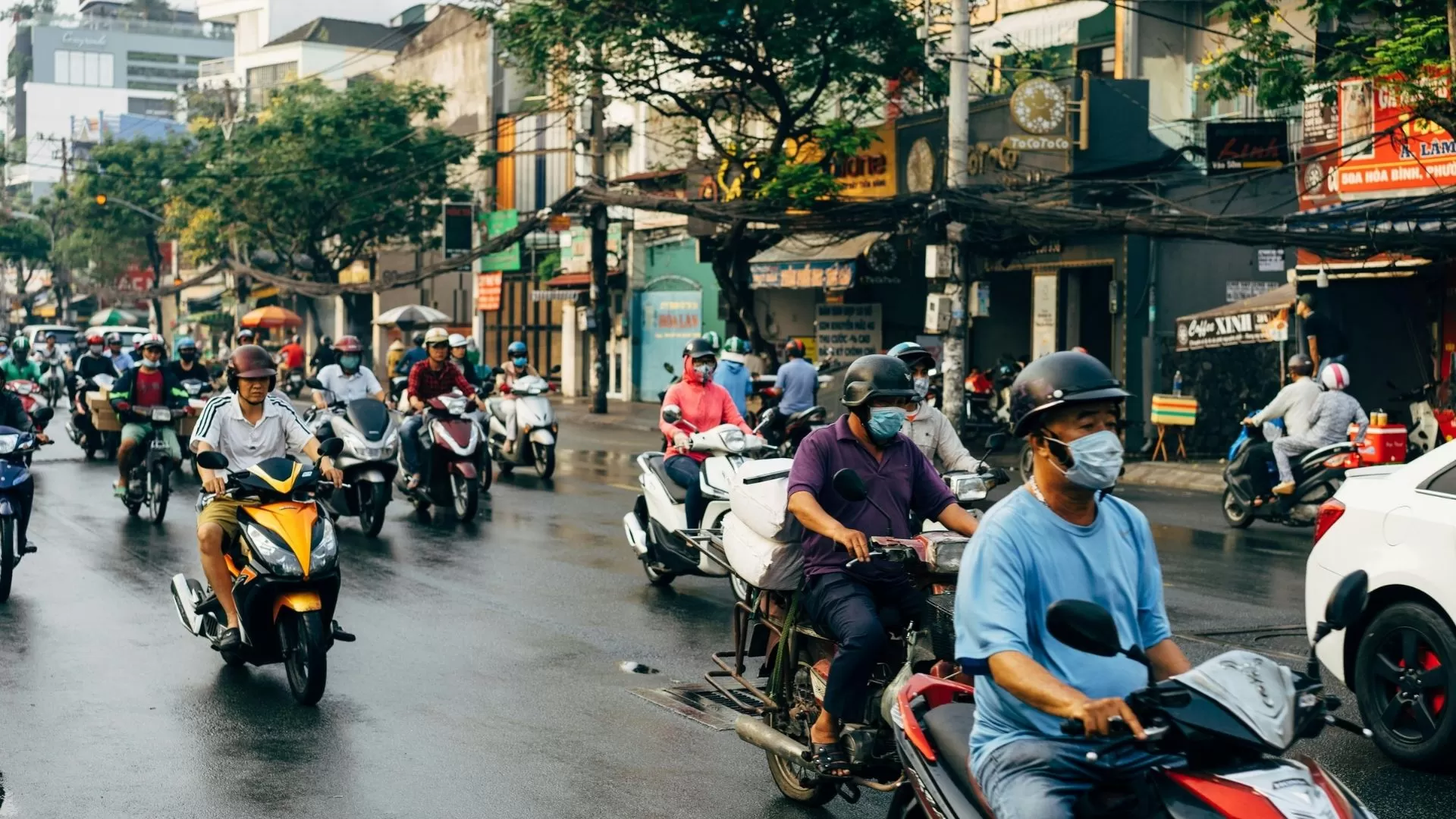
To make your Vietnam trip as smooth and unforgettable as possible, Hanoi Voyages gives some useful travel tips to help you get ready for your holiday.
- Book in advance for long-distance travel: Whether traveling by bus, train, or domestic flight, booking tickets early is essential, especially during peak seasons. This ensures you get better seats, avoid last-minute price surges, and secure your preferred travel time.
- Use ride-hailing apps for convenience: In major cities like Hanoi and Ho Chi Minh City, apps like Grab, Be, and Xanh SM make getting around much easier. These services offer motorbikes, taxis, and car rides at reasonable prices, helping you avoid the hassle of negotiating fares with traditional taxis.
- Stay safe and keep valuables secure: Petty theft can be an issue, especially on crowded buses or trains. Always keep your bag close, avoid displaying valuables, and be cautious when storing luggage in overhead compartments or under the seat. If taking an overnight bus or train, secure your belongings before sleeping.
- Be cautious when driving or crossing the street: Traffic in Vietnam can be chaotic, especially in major cities. Motorbikes dominate the roads, making it crucial to stay alert when crossing. Vehicles do not always stop for pedestrians, so always watch the traffic carefully before stepping onto the road.
Exploring Vietnam is an incredible experience, and choosing the right transportation in Vietnam ensures a smooth and enjoyable journey. Let Hanoi Voyages handle the details - contact us today to start planning your perfect trip!
Dream about your trip to Asia, in private
We are here to make it happen with youFREE QUOTE, WITHOUT OBLIGATION








